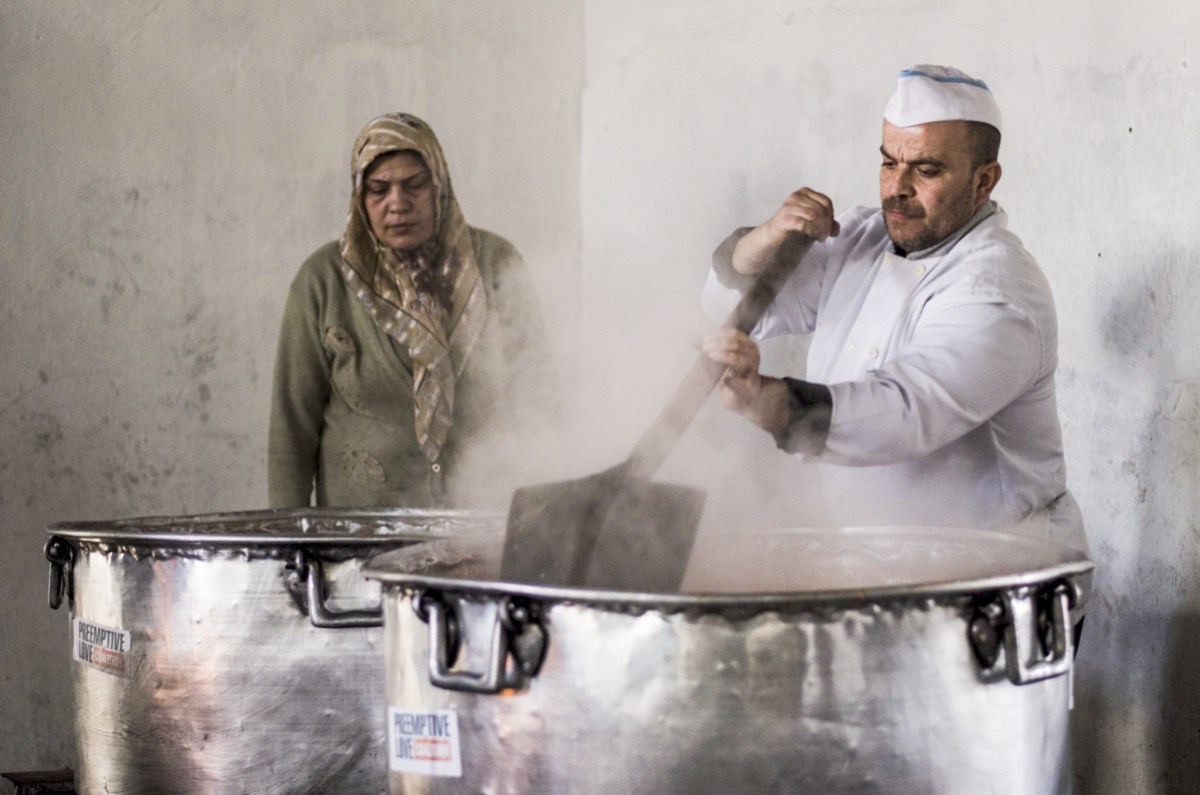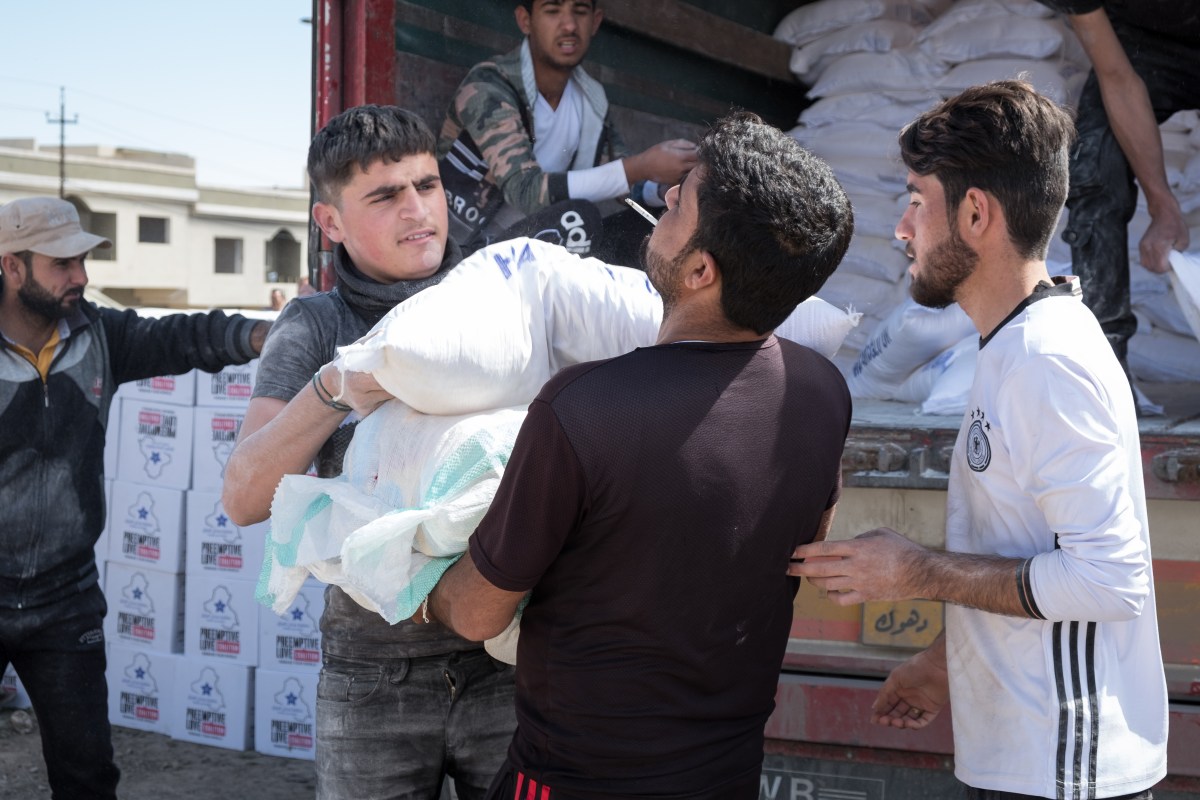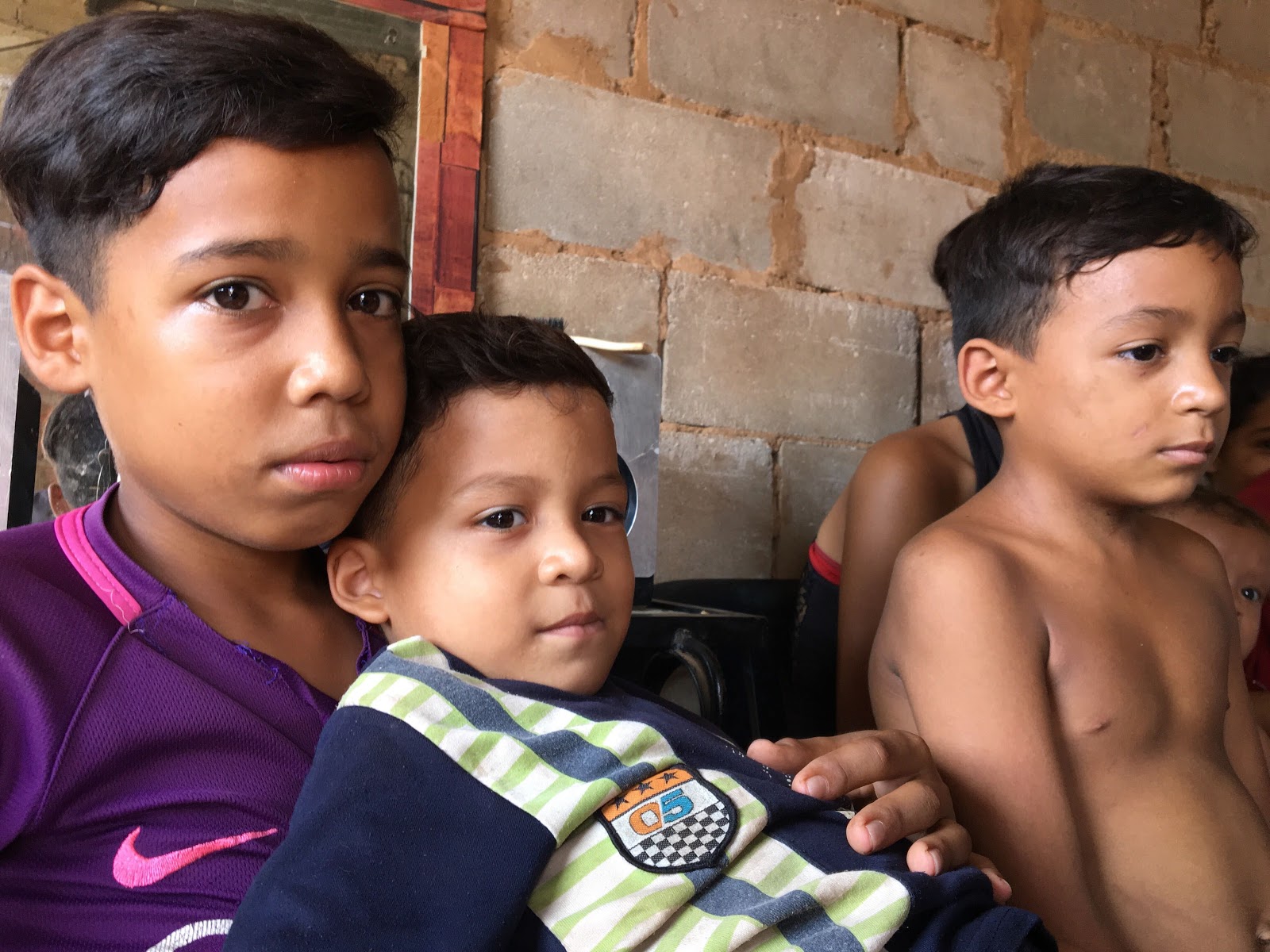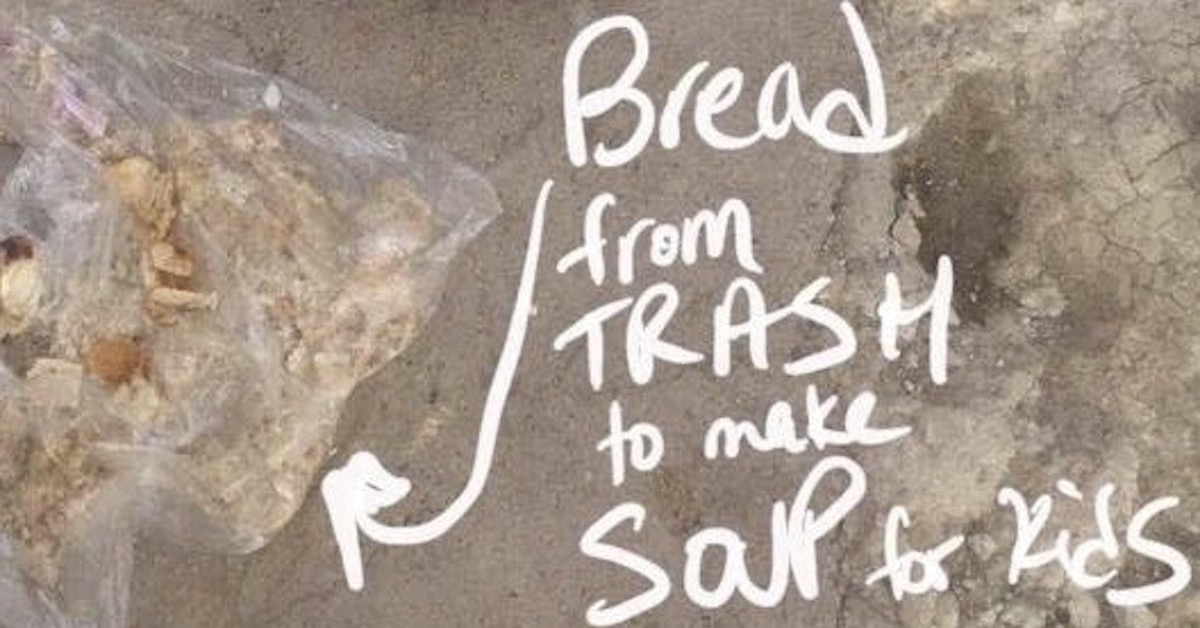
Unexpected Empathy: Finding Ourselves in Our Global Neighbors
What does empathy have to do with emergency aid? In this final episode of Season 4, Erin Wilson, podcast host and senior field editor, sits down with Jessica Courtney, Preemptive Love’s vice president of international programs, for an honest look at what they’ve learned about themselves as they’ve cared for others.
Share this episode
Show Notes
In this final episode of season 4, Erin Wilson, podcast host and senior field editor, sits down with Jessica Courtney, Preemptive Love’s vice president of international programs, for an honest look at what they’ve learned about themselves as they’ve cared for others.

This episode:
- Invites you into a behind-the-scenes look at emergency food distributions in Iraq and Syria. Ihsan Ibraheem, who does program documentation, gives an on-the-ground update.
- Takes you to Venezuela, where you’ll hear—in their own words—from new friends who were able to make ends meet because of food deliveries.
- Welcomes you to peek behind the podcasting curtain, as Erin vulnerably shares about the photos that made her not only cry, but think about her global neighbors—and herself—in a new way.
Feeding hungry families may sound straightforward. And in some ways, it is.
But the way we do this work matters. How we see the people we’re feeding matters. Erin shares how having a front-row seat to Preemptive Love’s food distributions has changed her and the way she sees the people we serve.

Distributing food is never just about the food. It’s about alleviating suffering. It’s about restoring a bit of agency for someone whose whole life has been torn away from them.

It’s about standing with folks who need some solidarity. It’s about giving some normalcy, and a chance to catch their breath.
What-If Discussion Questions from Erin:
- What if our imaginations are our superpowers?
- What if our ability to see ourselves in the stories of others—gives us the clues we need to move forward?
- What if we imagine our children in the place of Syrian kids on the move to avoid bombings?
- What if, instead of shutting out the world, we look for the stories with resonance for us?
- What if, instead of thinking about all the world’s problems–situations that we can’t change, what if we focused on a few that we can?
- What if we look to our local communities, too? Who are we missing in our own neighborhoods? Who in our own communities is hungry, lonely, tired?

Want to stay connected for upcoming bonus episodes and seasons? Text “love anyway pod” to 72000 to be the first to know.
Additional Resources
Full Transcript
Jessica: Our teams are constantly listening to what’s happening on the ground. One of the most beautiful things about partnering with our local teams is that they know the area and these are their people and I just love that we can empower local people. To be the local solution where they are, because this isn’t a program to them. This is how can we leverage the friendship and the donations of people outside of these countries to empower men and women inside of these countries to help their own people.
INTRO MUSIC
Erin: You’re listening to Love Anyway, a podcast by Preemptive Love. I’m your host, Erin Wilson, senior field editor based in Iraq. We post daily as “preemptivelove” on Instagram, Twitter, and Facebook. You can learn more about us and find show notes for every episode of Love Anyway at preemptivelove.org/podcast.
[Music fading into sound of food distribution]
Erin: During the war with ISIS, we brought truckload after truckload of food to families trapped on the frontlines of some of the most brutal combat imaginable. I was there for many of those distributions. In our very first episode of the Love Anyway podcast, we shared the harrowing story of what happened to two of my colleagues one night when our food trucks broke down and were intercepted by a fleeing ISIS convoy.
In the last few months, we’ve been responding to new, equally desperate cries for food—except this time, the cause isn’t war. It’s a pandemic.
Ihsan: Good morning everyone. So today we are here in the refugee camp in northern Iraq and we are doing a food distribution.
Because of the lockdown, because of COVID-19 prices, we have been hearing calls for help—to help those families who are trapped inside there inside the camp. And they can’t go out, they can’t work, they can’t provide for their families.
Erin: That was my colleague Ihsan at a recent food distribution in Iraq. We’re hearing from friends in vulnerable communities, first crushed by violence, and now seriously impacted by COVID-19, who just can’t make it on their own. Folks are going days at a time without food, so we’re showing up, working hard so that no one starves in quarantine, in places where we’ve worked for years—like Iraq and Syria—as well as some relatively newer locations, like Mexico and Venezuela.
Feeding hungry families may sound straightforward. And in some ways, it is. But the way we do this work matters. How we see the people we’re feeding matters.
In this episode, I sit down with Jessica Courtney, our Vice President of International Programs, to talk about how we distribute food in a crisis. I’ll also share how having a front-row seat to our food distributions has changed me and the way I see the people we serve.
One thing will become clear as you listen—Jessica approaches our work with keen professionalism… and with a mother’s heart. Her experience as a mom informs how we do what we do, and pushes her forward even when the need seems overwhelming.
[sound from a food delivery]
Jessica: When we’re talking about food, and how we get food to people. We’ve done it several different ways. The first way is by delivering ready to eat food boxes, ready to eat food boxes are the most expensive way to get food to people. But it’s so important for people to have in the midst of an emergency as they’re fleeing home because they don’t yet know where they’re going. And they oftentimes haven’t had a meal in several days, not just several hours and so for them because they’ve been on the run.
[music playing under Jessica for a bit]
And so if you can meet them with something that they can open immediately and put in their children’s hands and their children can eat crackers, canned meats, canned vegetables, then it’s something that they get to eat it immediately and then have enough to carry with them on until they get to a point of safety.
Erin: For those who’ve fled but have a way to cook a more nourishing meal, we often provide week-long food packs.
Jessica: We only help families with these week-long food packs when they’re in a place where they have access to a stove. Sometimes it’s a community kitchen. And we’re seeing this and several of the schools in Syria right now. They have these community kitchens and so families are able to cook food for themselves.
Erin: Providing food in conflict zones is complicated. You have to factor in not just nutritional needs, but very practical questions, like how heavy will it be to carry? Will it travel well? Is it familiar food that will be comforting to kids experiencing trauma?
The challenges are different once you’ve stopped running, once you’ve found a place to stay.
Jessica: They’re not necessarily living in safety yet. oftentimes they’re living in homes that are broken by the war, but they have access to fuel they have access to Kitchen. And we can, we can deliver one time a big bulk of food for them, and then they can use that throughout the month. It’s a very cost-effective way to help people get food. It gives them the most agency over their lives. Instead of spending their days and hours worrying about am I going to have food for my kids next week? They can spend their days their hours working to figure out how are they going to buy food next month, you know, it just gives underlying security to start being able to rebuild and to start being able to look to the future instead of having to just worry about today.
[sound from a food distribution]
Erin: And then sometimes, when families have no kitchen of their own, we bring the kitchen to them.
Jessica: They don’t have anything working in their homes. their homes have been raided, stoves and ovens are gone, the government’s not yet there to distribute the fuel that they need to run their own kitchens. We bring in fuel and set up massive community kitchens, where we’re cooking meals for thousands, if not hundreds of thousands of people a day. And it’s people in the community that are hired to work in these kitchens. So we’re able to inject income into the community. I remember being in a camp where we had just started a hot food kitchen and that this is in South Western Syria. I was in the kitchen eating and these other kids were these little kids were coming with their buckets to fill with food for the day and, and this little boy was Pete peeping his head through the window to get his food. And we just leaned over and we said, What do you think of the food? And he said, this one, this meal, this is what my mom used to cook at home. And, knowing that, that families can have the kind of food that they want, get to speak into what they get at varying levels and different points of the crisis is really beautiful.
We try our best as quickly as we can to move away from these kitchens though we want each family to have a choice in what they’re feeding their children and, and as the soonest that we can give that agency back to the family rather than going and getting something that someone else is making but giving that mom the ability to, to cook again at her own stove and to provide for her children. We want to get to that place.
Erin: Distributing food is never just about the food. It’s about alleviating suffering. It’s about restoring a bit of agency for someone whose whole life has been torn away from them. It’s about standing with folks who need some solidarity. And especially, with our month-long food packs, it’s about giving some normalcy, and a chance to catch their breath.
Jessica: I find that the thing that I need to do when I get back to a home-based kind of place is I need to clean the kitchen and I need to cook a meal because I don’t. There’s something in that, that settles me. There’s something in that that makes me feel like I’m doing my job caring for my family.
And the funny thing about it is, that’s not my favorite thing to do when I’m at home. But when I’m not at home, to cook things that are familiar to my kids, that it does something deep in my soul to kind of root me in that place. And help us all know this is familiar, and we’re going to be well, and we’ve never come from massive conflict and running for our lives, you know, into these spaces. And so as we talked to other moms and families, to see what it is that they need and what they want. Monthly food packs tend to be a huge help and in them getting resettled back at home and feeling security back at home.
Erin: We have so many ways of making sure that hungry families get the food they need—the way they need it for their situation. But how we see these families is just as important as the food we provide for them.
If you’re a parent, maybe you listen to the news with the heart of a parent. Maybe you can picture your own children in photos of hungry kids. Maybe your mind replays videos of vulnerable kids fleeing home when you tuck your own children into bed at night.
But if you’re like me, maybe your heart has to find a different way to empathy? I’ll share more about that after the break.
[MIDROLL AD]
Erin: I sometimes joke that I fall in love for a living—with moms and their families at the nearby refugee camp for Syrians, with men and women who give all of their energy to be able to take care of their families. With young people at our tech hubs. And even during the brief encounters at food distributions.
But if I’m honest, it’s not easy for me to identify with the folks we serve. I’m a white, English-speaking Canadian. As much as I try to learn from my friends and neighbors here in Iraq, I will never know what it was like to grow up in a country at war.
[MUSIC]
Erin: Unlike so many of the widows we help get back on their feet in Iraq, whose husbands were killed in the fight against ISIS, I never married…I will never know what it feels like to lose a spouse.
Unlike our friends who work from their tiny homes in refugee camps in order to provide food for their kids…I don’t have children. I don’t know what it does to your heart to hear the child you breast-fed as a baby now cry from hunger.
I love these folks we work with. But I have no idea what it is to be them.
[MUSIC]
For several months now Preemptive Love has been working with Venezuelan families who have been utterly crushed as their country’s economy crumbled. Families who have been going for three days at a time without food. We keep hearing from parents who, if they didn’t find moldy food in the garbage to washed and feed their kids…they wouldn’t have food at all.
On our weekly staff calls, there’s a hush as our colleagues bring these stories from the front lines of economic violence.
[MUSIC]
And then a few days ago, a new update came through from our team in Venezuela. I began sorting through photos (which you can see in the show notes at preemptivelove.org/podcast). I was making decisions about which to use for upcoming blog posts, which might work for social media. And then I stopped scrolling. A few photos of women filled my computer screen. In each one, they were receiving heavy sacs of food…staples like rice, but also protein like chicken. In most of the pictures, the women were holding a flat of eggs, while a large woven sack of food was placed on the ground in front of them. The monthly food packs we’re distributing in Venezuela right now—they are too heavy for anyone to carry all at once…
[MUSIC]
These women, they look like me. They have grey hair like me. One of them has a belly like me. And in these photos, they have tears streaming down their faces, they are so grateful for this food. Hang on, let me play you a bit of audio from one of the women who received food last week…
Woman, translation from Spanish: On Monday I opened the fridge and saw that I was out of supplies, and as you know am not a settler nor am I used to live like this. But God knows my worries, my needs, and my distress. The only thing I do, as I said on Monday, is cry out to the Lord. He is my provider and the one who holds me up. I prayed that He touched the person who brought supplies to this house.
Erin: In case you don’t speak Spanish, this is the crux of what she says: she opened the fridge a couple days earlier, and found it totally empty. And she was completely relying on God to provide for her needs.
These women on my computer screen and in my head phones…they looked like me. Many of these women used have the means to take care of their families. They were independent, they worked hard….
Maybe you know what that’s like. Maybe before coronavirus torched the economy and put so many people out of work, maybe your life looked a lot different than it does now. Maybe, like many of our new Venezuelan friends, you always thought that if you worked hard enough, you would be able to take care of yourself and your family.
[MUSIC]
Until something like a pandemic came and upended everything. Until something like war came. Until something like violence came and took everything you worked for that gave you some security. Sometimes, despite your best efforts, life doesn’t turn out like you’d planned…and you can’t make it on your own.
Erin: I’d like you to meet Armando. He’s 90, and lives alone. Our Venezuelan team met Armando when they were out visiting some of the area’s most vulnerable. They asked him how he was doing…
Armando 00:31 Entones les cuento con toda la sinceridad y toda la verdad, el cien
por ciento de mi eterno dolor. La triste soledad (soledad), que no se la deseo a
nadie…
Erin: This is what Armando told us, “I’m going to be completely sincere and truthful, 100% real about the pain I’m feeling. I’m lonely, which is something I wouldn’t wish on anyone. It feels like I’m in jail, I’m here stuck in these four walls. There’s millions of ants, cockroaches, that’s where I live, I live in misery. I hope I get to touch your hearts and that you understand the reality of my situation.
[MUSIC]
Erin: Watching the news is overwhelming…we know this. Sometimes it’s just too much, and we want to shut it all out.
But what if our imaginations are our superpowers? What if our ability to see ourselves in the stories of others—gives us the clues we need to move forward. What if we allowed ourselves to imagine a father who has passed away, in Armando’s place. Or imagining our children in the place of Syrian kids on the move to avoid bombings. What if, instead of shutting out the world, we look for the stories with resonance for us. What if, instead of thinking about all the world’s problems–situations that we can’t change, what if we focused on a few that we can?
What if I imagine myself in the place of Venezuelan women, with grey hair like me, who never, ever imagined themselves in need like this. I’m donating to Preemptive Love’s relief work, absolutely. I want these women to know that they aren’t alone. But I’m also wondering…who am I missing in my own neighborhood? Who in my own community is hungry, lonely, tired?
Ihsan: So we are here today. We are responding. I hear that we are the first to be here. We are the first to respond and bring aid and help to these families. So, that’s happened because of you, because of your support, because of your generosity, because of you keep giving to make sure that when a situation like this happened, we are here, we can respond. And we are going now to, to distribute the food to their families and we will see you there.
MUSIC
Erin: That’s it for today…and for season four. Find show notes for all seasons of the Love Anyway podcast at preemptivelove.org/podcast, or you can text “love anyway pod” to 72000 to stay connected.
We’ll be back again soon for Season Five. Until next time, I’m Erin Wilson. Thanks for listening.
END MUSIC
Kayla: Love Anyway is a podcast by Preemptive Love. It’s written and produced by Erin Wilson, Kayla Craig, and Ben Irwin. Sean Gabrielson is our audio editor. Skip Matheny is Preemptive Love’s director of digital. Executive producers are Jeremy Courtney, Jessica Courtney, and JR Pershall. Our theme music is by Roman Candle.


